Find Help
More Items From Ergsy search
-
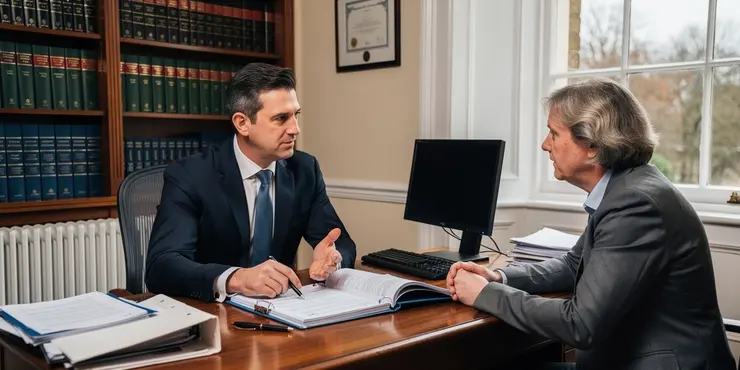
What is a Power of Attorney?
Relevance: 100%
-
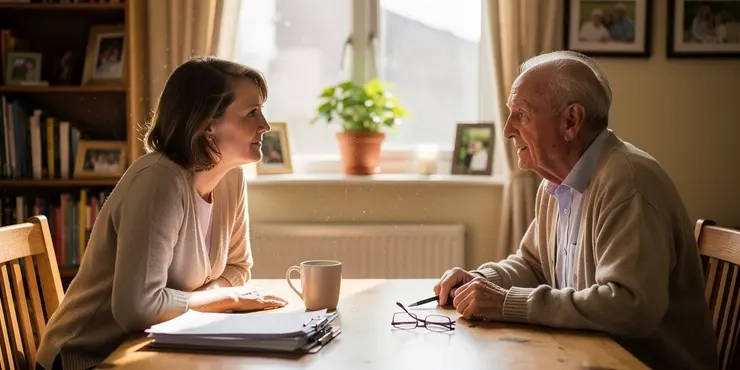
What Is A Power of Attorney
Relevance: 99%
-
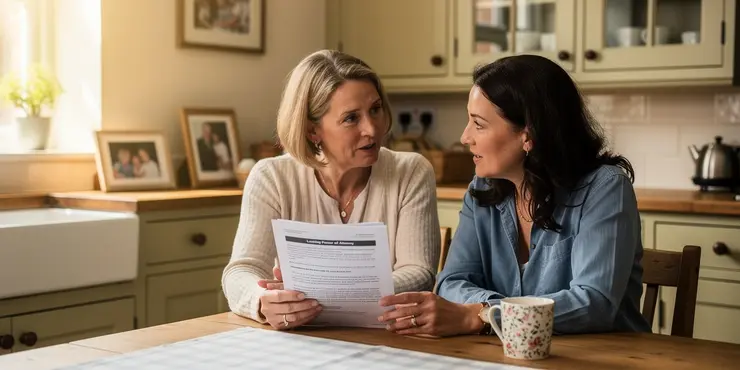
What is a Lasting Power of Attorney?
Relevance: 92%
-
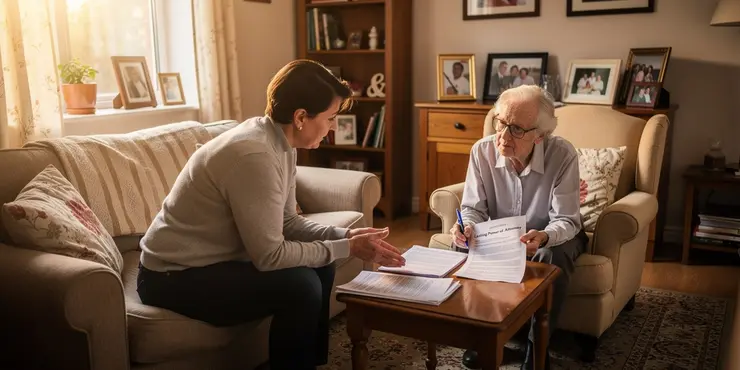
What is a lasting Power of Attorney?
Relevance: 89%
-
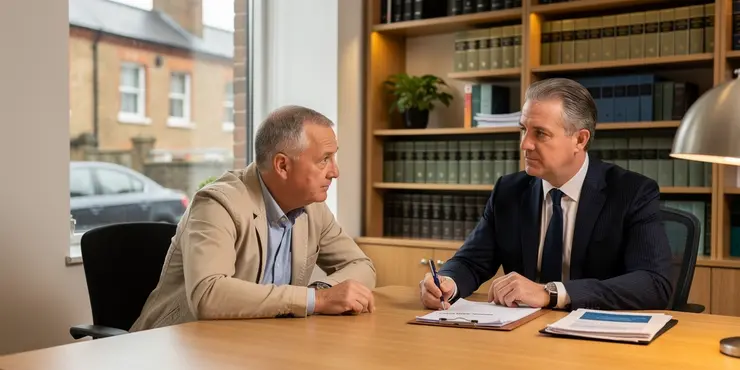
What are the types of Lasting Power of Attorney?
Relevance: 85%
-
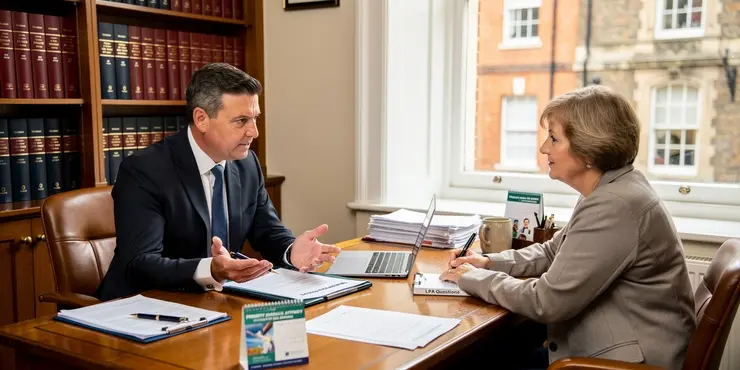
What are the types of Lasting Power of Attorney (LPA)?
Relevance: 84%
-
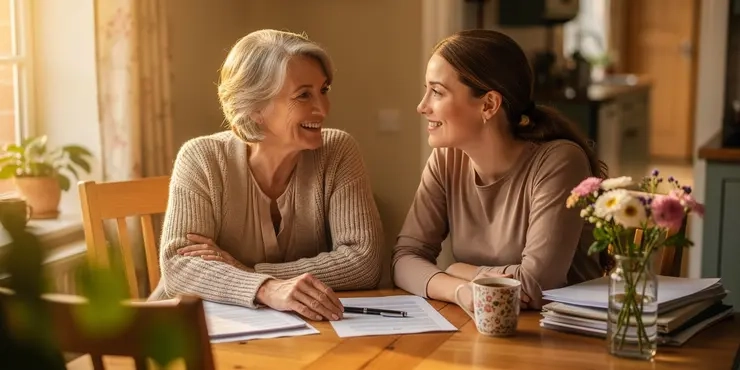
Lasting Power of Attorney UK - A 2023 Guide
Relevance: 84%
-
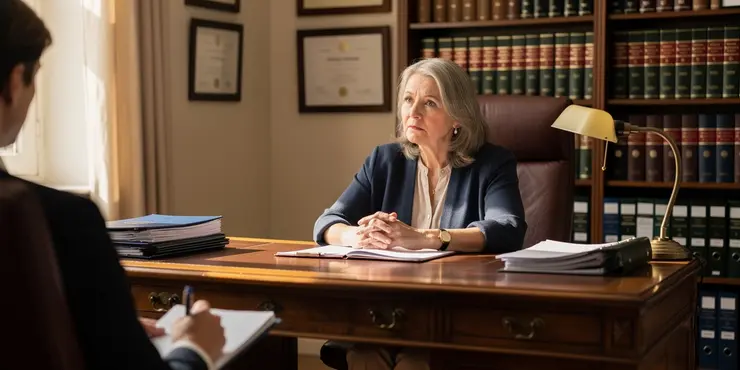
Court of Protection and lasting power of attorney.
Relevance: 82%
-
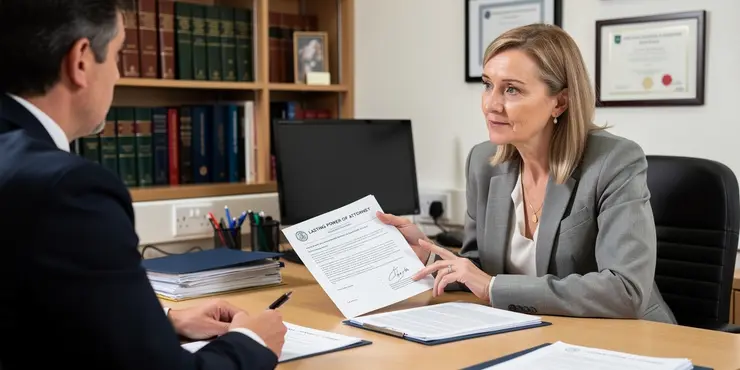
How to Set Up a Lasting Power of Attorney
Relevance: 81%
-
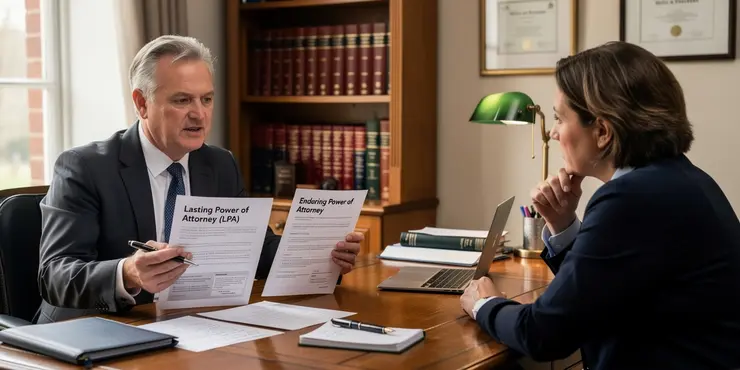
How does an LPA differ from an Enduring Power of Attorney?
Relevance: 79%
-
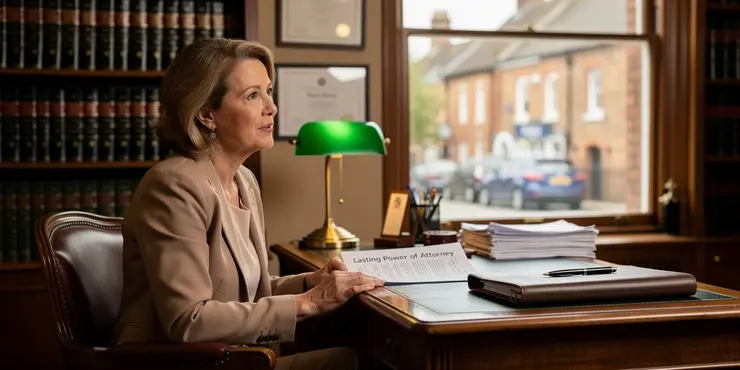
Who can be appointed as an attorney under a Lasting Power of Attorney?
Relevance: 79%
-
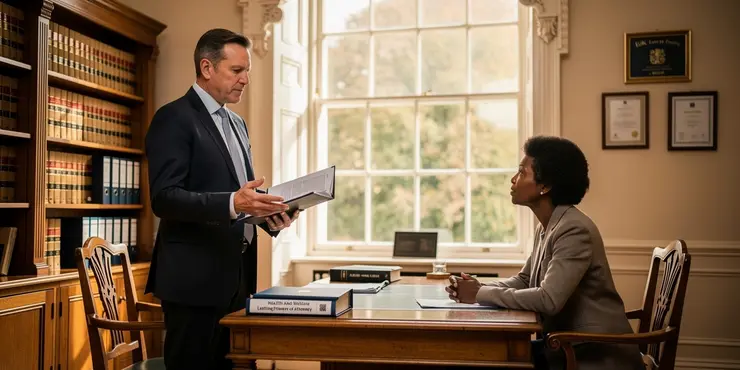
What powers does an attorney have in a Health and Welfare LPA?
Relevance: 77%
-
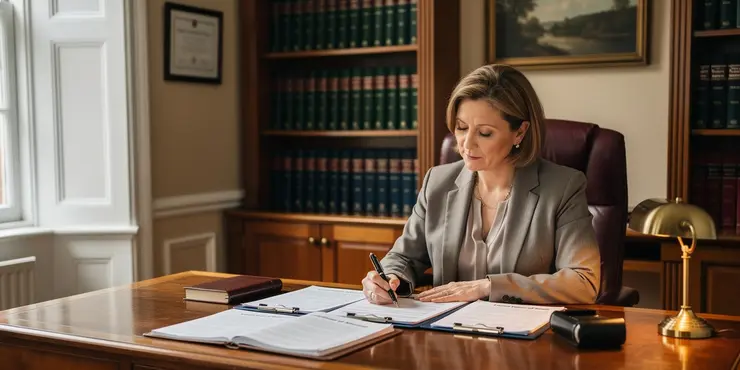
How do I set up a Lasting Power of Attorney?
Relevance: 77%
-
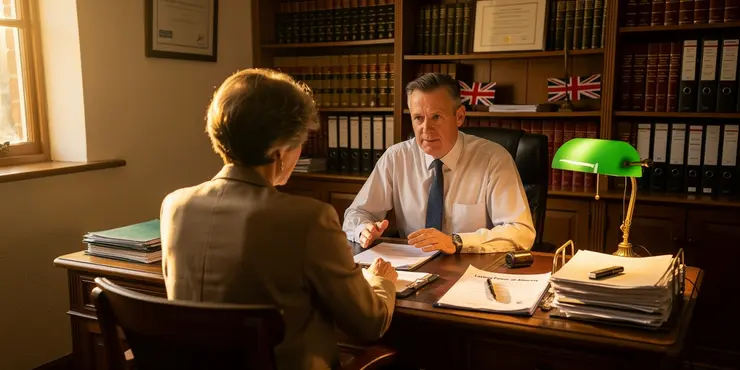
Why is an Lasting Power of Attorney (LPA) important?
Relevance: 75%
-

Is a lawyer needed to set up a Lasting Power of Attorney (LPA)?
Relevance: 74%
-
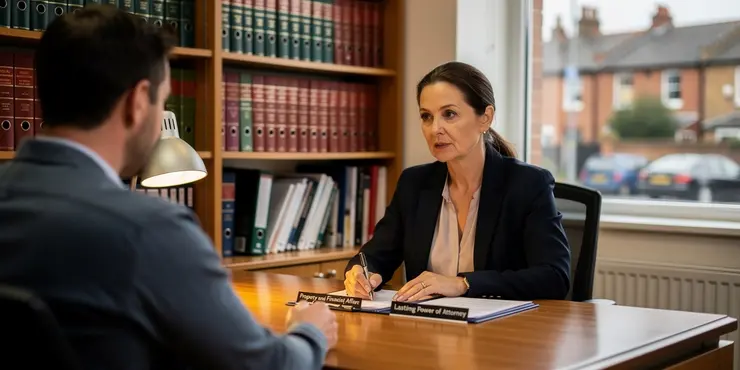
What decisions can an attorney make under a Property and Financial Affairs Lasting Power Attorney?
Relevance: 73%
-
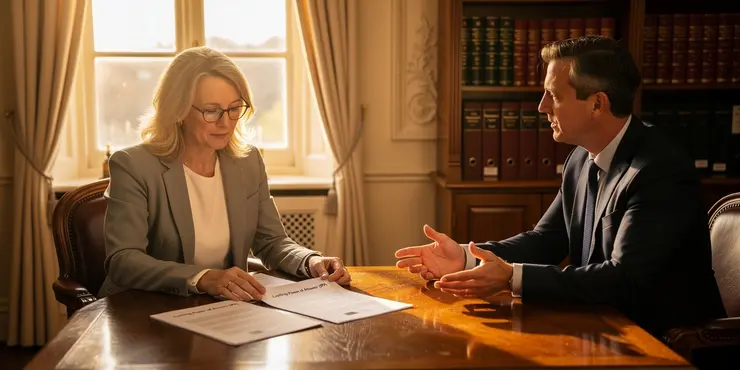
What is the role of the Office of the Public Guardian in regards to a Lasting Power of Attorney (LPA)?
Relevance: 72%
-
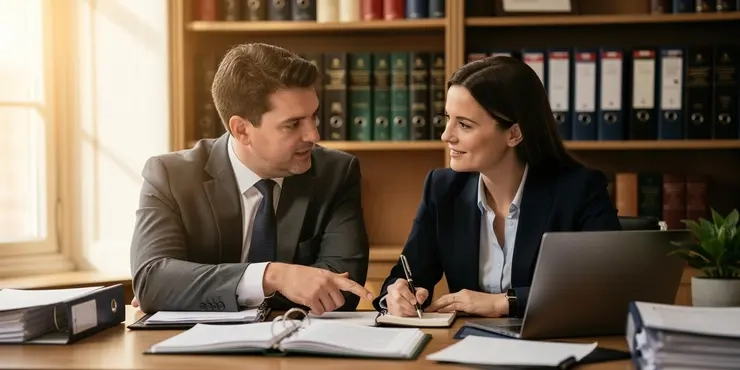
How do attorneys with Lasting Power of Attorney make decisions if there's more than one?
Relevance: 70%
-
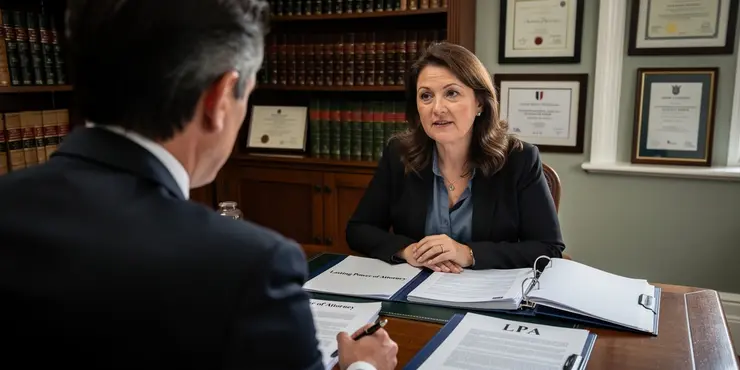
When does a Lasting Power of Attorney (LPA) come into effect?
Relevance: 68%
-
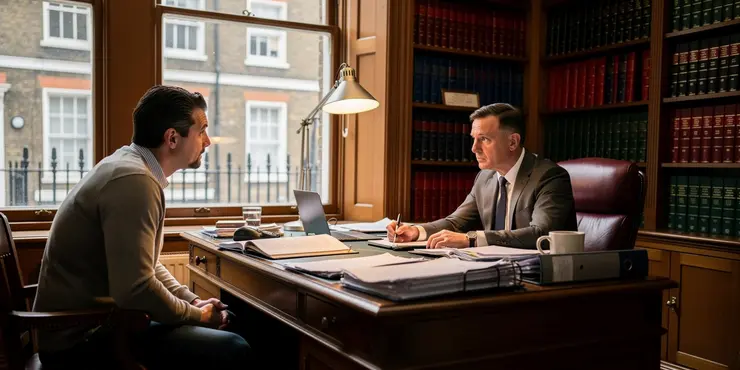
What happens if the attorney with lasting power of attorney does not act in my best interests?
Relevance: 64%
-
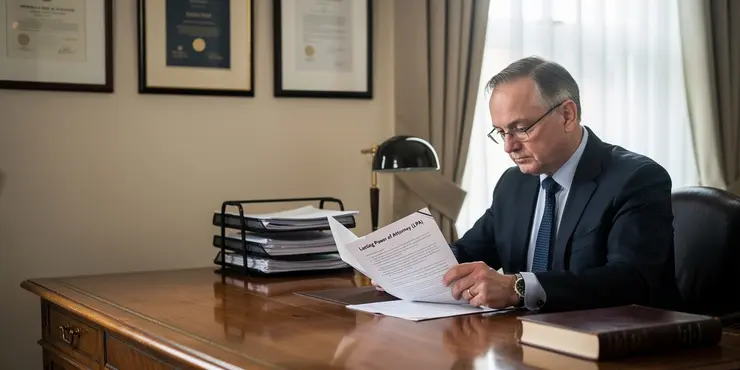
What are the restrictions on attorneys under an LPA?
Relevance: 61%
-
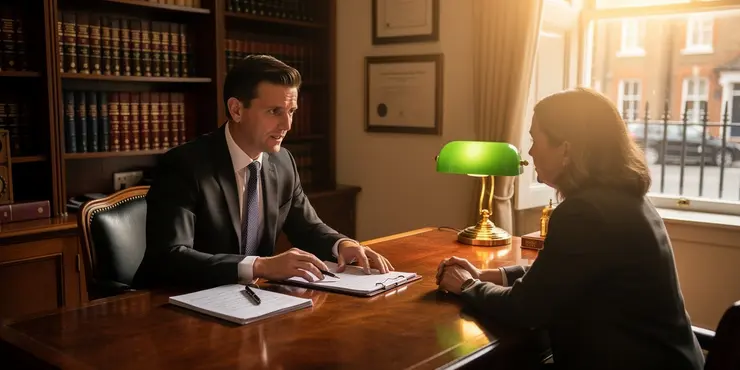
Are there costs involved in setting up an Lasting Power of Attorney (LPA)?
Relevance: 59%
-
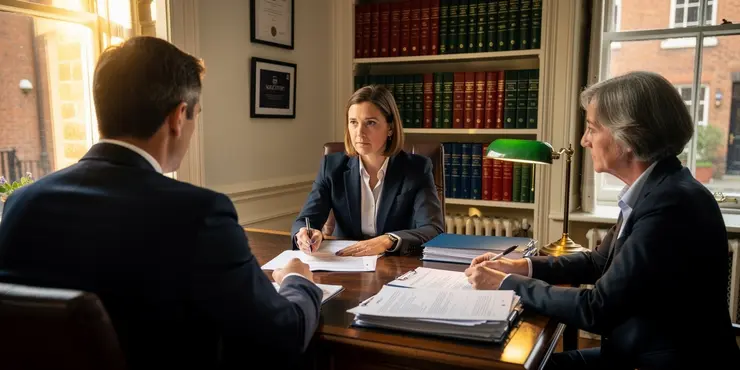
Can I have more than one attorney in an LPA?
Relevance: 58%
-
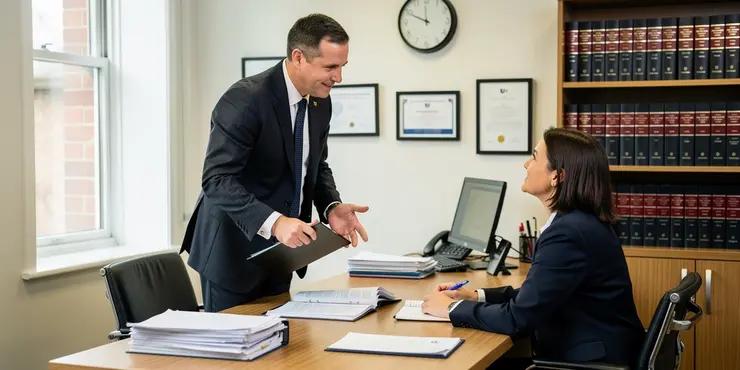
Can the Chief Law Officer for England and Wales overrule a court?
Relevance: 43%
-
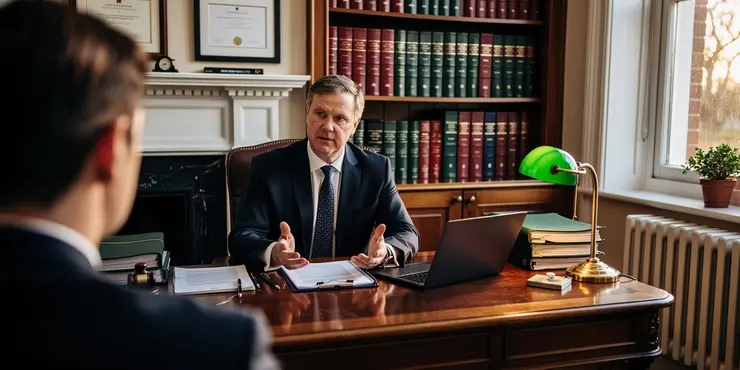
Can the Chief Law Officer for England and Wales intervene in a legal case?
Relevance: 40%
-
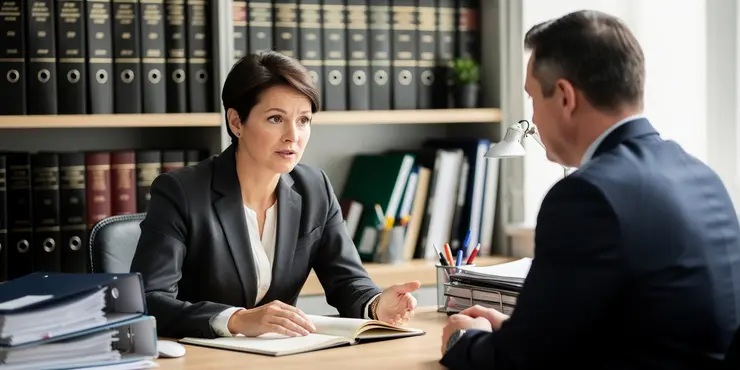
Can the Chief Law Officer for England and Wales make decisions on public prosecution matters?
Relevance: 40%
-
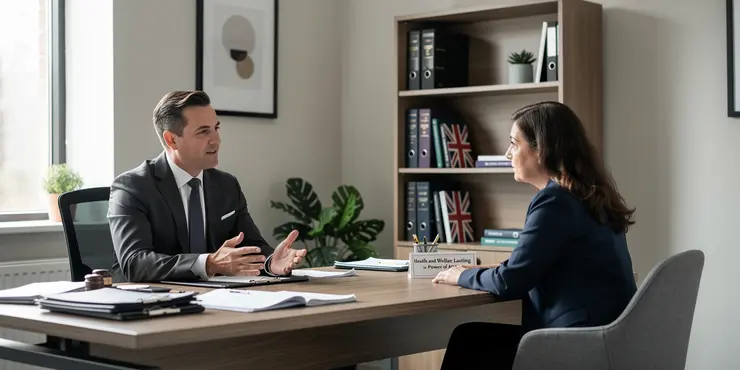
What powers does an attorney have in a Health and Welfare LPA?
Relevance: 37%
-
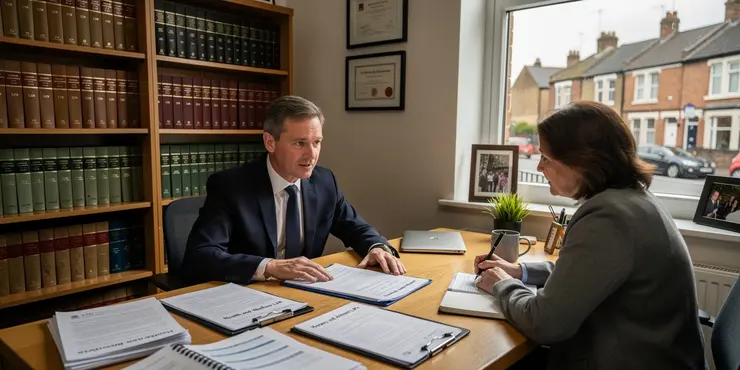
What powers does an attorney have in a Health and Welfare LPA?
Relevance: 37%
-
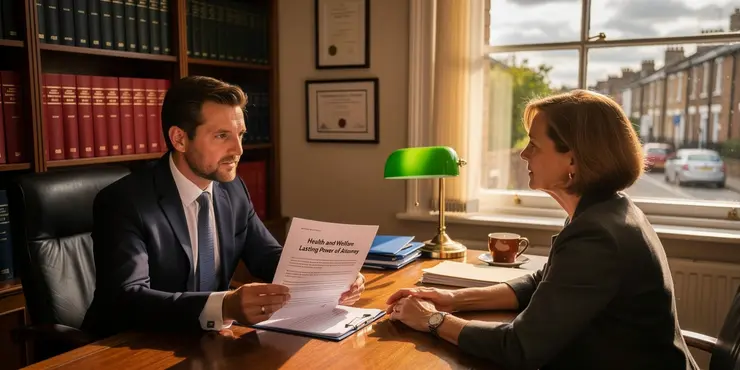
What powers does an attorney have in a Health and Welfare LPA?
Relevance: 37%
-
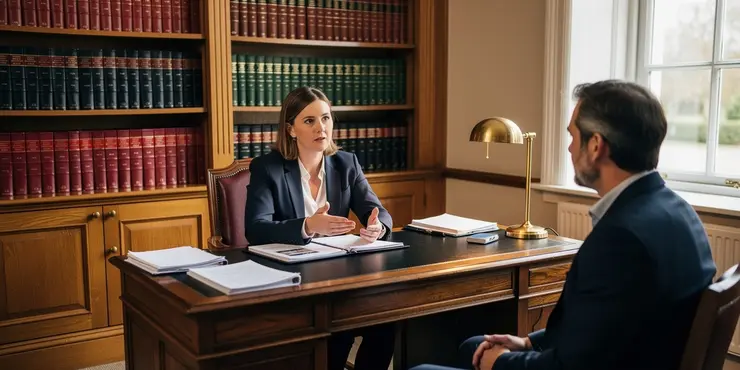
What powers does an attorney have in a Health and Welfare LPA?
Relevance: 37%
-
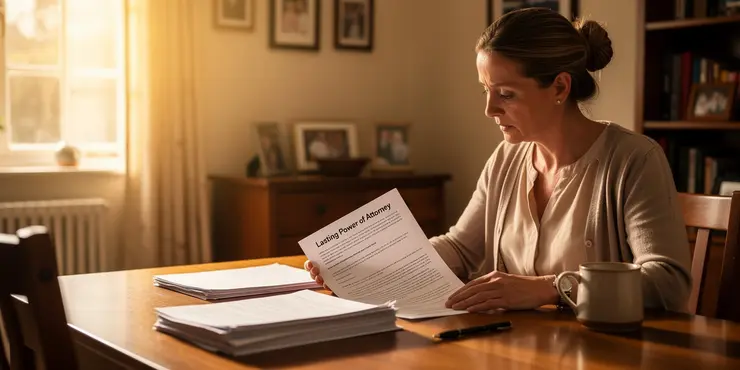
What legal resources are available for carers of Alzheimer's patients?
Relevance: 34%
-
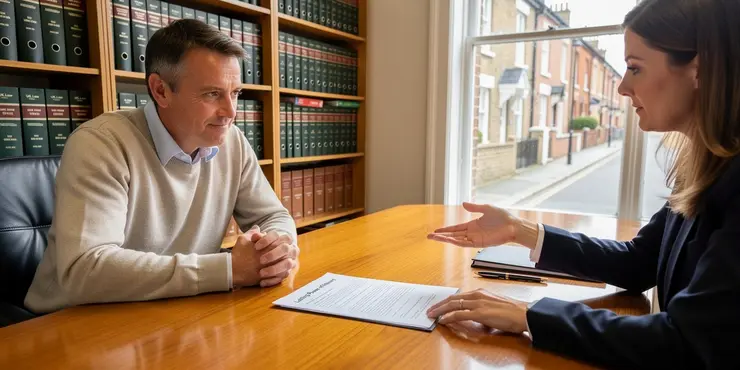
Can an LPA be used while I still have mental capacity?
Relevance: 33%
-
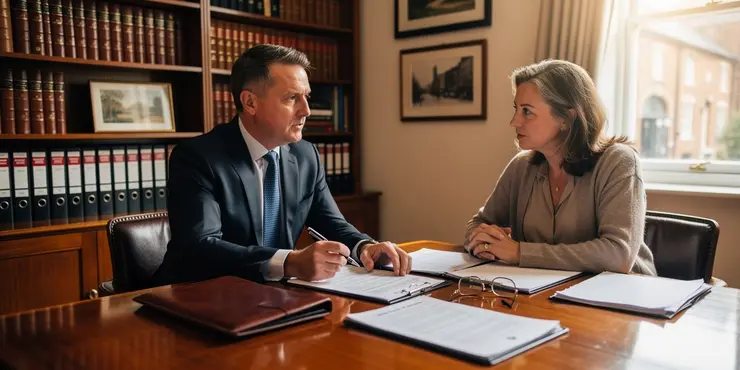
Is it necessary to have both types of LPAs?
Relevance: 33%
-
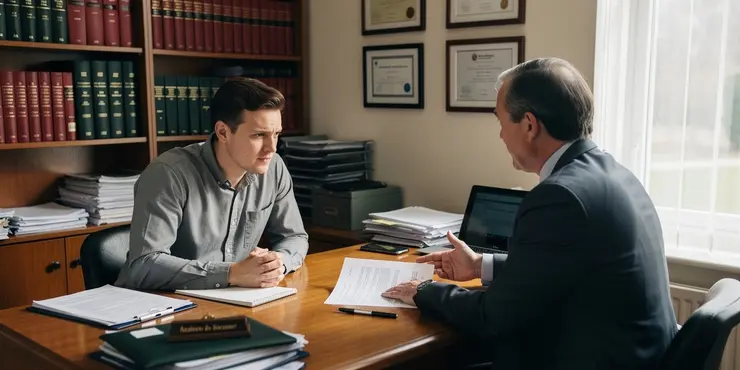
Is the position of the Chief Law Officer for England and Wales unique to the UK?
Relevance: 33%
-
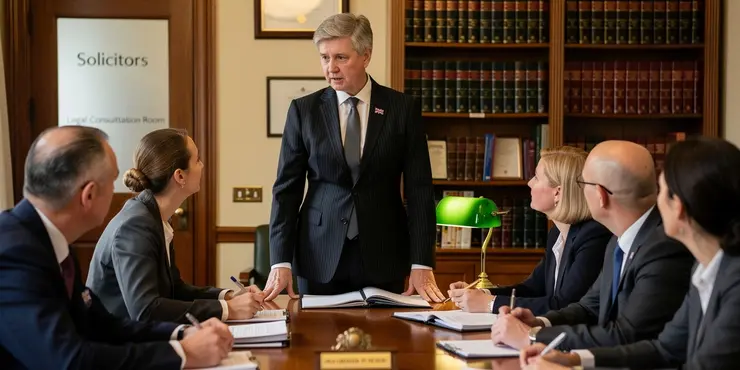
How does the Chief Law Officer for England and Wales relate to the judiciary?
Relevance: 32%
-
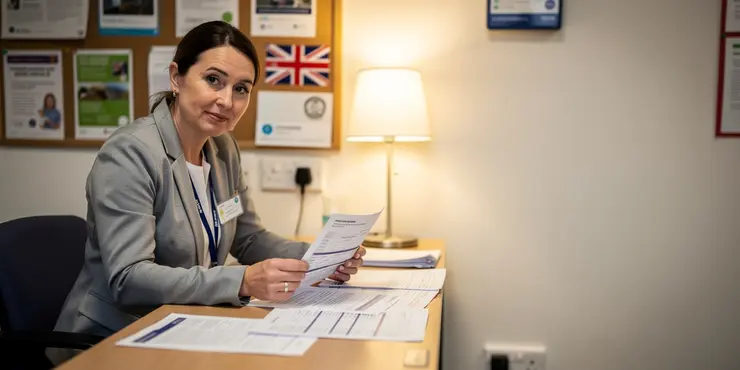
Can I apply for the payment for someone else?
Relevance: 32%
-
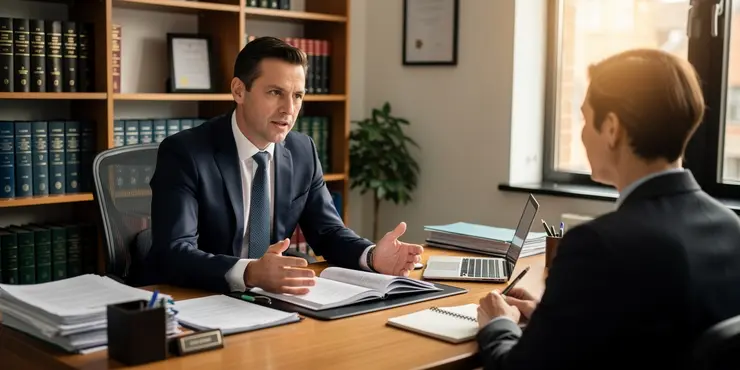
Does the Chief Law Officer for England and Wales in the UK handle prosecution cases?
Relevance: 32%
-
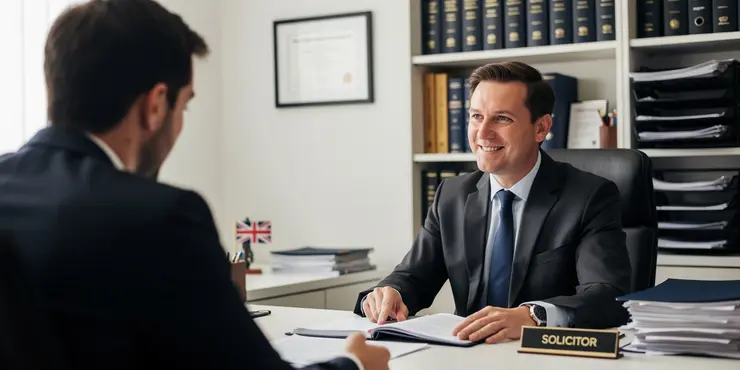
Can my attorney check my immigration status for me?
Relevance: 32%
-
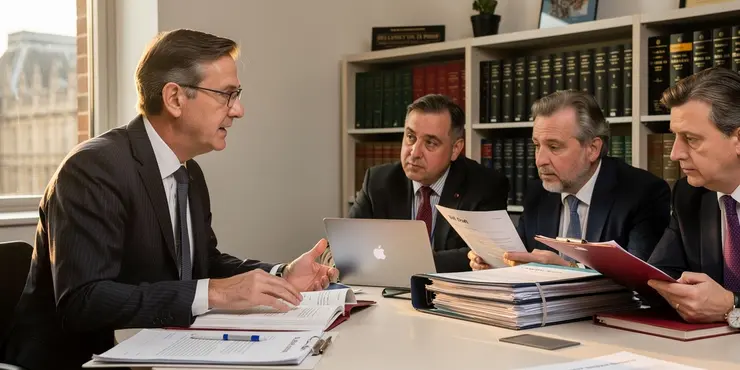
How is the Chief Law Officer for England and Wales involved in the legislative process in the UK?
Relevance: 31%
-
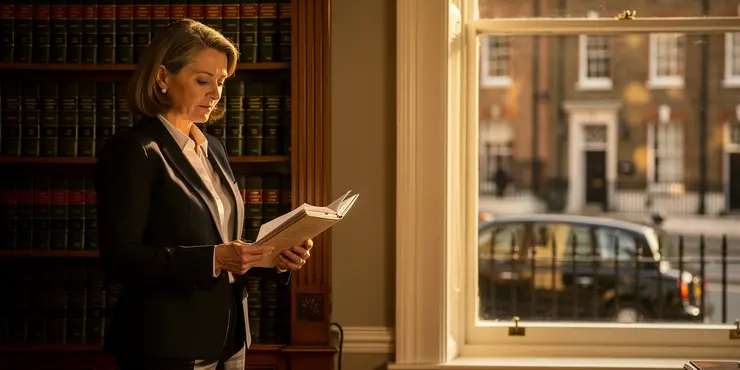
What is the role of the Chief Law Officer for England and Wales?
Relevance: 31%
What Is A Power of Attorney?
Introduction
A Power of Attorney (POA) is a legal document that grants an individual, known as the 'attorney' or 'agent', the authority to make decisions on behalf of another person, called the 'donor' or 'principal'. In the United Kingdom, this delegated authority can cover a range of matters including financial affairs, property transactions, and health and welfare decisions.
Types of Power of Attorney in the UK
There are several types of Power of Attorney in the UK:
- Ordinary Power of Attorney: This type is usually temporary and only valid while the donor still has mental capacity. It is often used for specific tasks such as managing finances for a set period.
- Lasting Power of Attorney (LPA): This is more comprehensive and can remain in effect even if the donor loses mental capacity. It is divided into two categories:
- Property and Financial Affairs LPA: Covers financial transactions and property matters.
- Health and Welfare LPA: Covers personal healthcare and welfare decisions, such as medical care and living arrangements.
Creating and Registering a Power of Attorney
In the UK, creating an LPA involves completing specific forms, which can be obtained from the Office of the Public Guardian (OPG) or online through the official UK government website. The forms require details about the donor, the appointed attorney(s), and their specific powers. Once completed, the forms must be signed, witnessed, and registered with the OPG to become legally effective. Registration can take several weeks and involves a fee.
Responsibilities and Duties of the Attorney
The appointed attorney has a legal duty to act in the donor's best interest, adhering to the principles set out in the Mental Capacity Act 2005. They must keep accurate records, avoid conflicts of interest, and consult the donor on decisions whenever possible. Failure to comply with these responsibilities can result in legal consequences and removal from their position.
Revoking a Power of Attorney
Revocation of a Power of Attorney can occur if the donor decides to withdraw the authority granted, provided they still have mental capacity. This can be done by creating a 'deed of revocation' and informing all relevant parties, including the OPG if the PoA is registered. Additionally, an LPA automatically ends if the donor or attorney passes away, the attorney loses mental capacity, or if they decide to stop acting as an attorney.
Conclusion
A Power of Attorney is an essential legal tool in the UK for managing affairs when one cannot do so themselves. Understanding its types, implementation process, and the responsibilities it entails can help individuals make informed decisions about planning for the future.
What Is A Power of Attorney?
Introduction
A Power of Attorney (POA) is an important paper. It lets one person, called the 'agent', make choices for someone else, called the 'donor'. In the UK, this can include handling money, property, and health decisions.
Types of Power of Attorney in the UK
In the UK, there are different types of Power of Attorney:
- Ordinary Power of Attorney: This is for a short time and only works if the donor can still make decisions. It's used for tasks like managing money for a while.
- Lasting Power of Attorney (LPA): This type lasts longer. It stays in effect even if the donor can't make decisions anymore. It comes in two kinds:
- Property and Financial Affairs LPA: Deals with money and property.
- Health and Welfare LPA: Deals with health and living choices, like doctors and where to live.
Creating and Registering a Power of Attorney
In the UK, to make a Lasting Power of Attorney, you fill in forms. You can get these forms from the Office of the Public Guardian (OPG) or on the UK government website. You need to give details about the donor and the agent. The form must be signed, watched, and sent to the OPG to work legally. This can take a few weeks and costs money.
Responsibilities and Duties of the Attorney
The agent must do what's best for the donor, following rules in the Mental Capacity Act 2005. They should keep good records and talk to the donor when making choices. If the agent doesn't do their duties right, they can get in trouble or lose their job.
Revoking a Power of Attorney
A donor can stop a Power of Attorney if they still can make decisions. They do this by making a ‘deed of revocation’ and telling everyone involved, including the OPG if it's registered. An LPA also ends if the donor or agent dies, if the agent can't make decisions anymore, or if the agent stops doing their job.
Conclusion
A Power of Attorney is a useful tool in the UK. It helps manage things when a person can't do it by themselves. Knowing about its types, how to make it, and what it involves helps people plan well for the future.
Frequently Asked Questions
What is a Power of Attorney?
A Power of Attorney is a legal document that allows one person (the 'donor') to grant another person (the 'attorney') the authority to make decisions on their behalf.
Who can create a Power of Attorney?
Any adult who has the mental capacity to understand the nature and effect of the document can create a Power of Attorney.
What types of Power of Attorney are there in the UK?
There are two main types: Ordinary Power of Attorney and Lasting Power of Attorney (LPA). LPA is further divided into Health and Welfare LPAs and Property and Financial Affairs LPAs.
What is an Ordinary Power of Attorney?
An Ordinary Power of Attorney covers decisions about your financial affairs and is only valid while you have mental capacity.
What is a Lasting Power of Attorney?
A Lasting Power of Attorney (LPA) is a legal document that remains in effect if you lose mental capacity, and it can cover decisions about health, welfare, property, and financial affairs.
How do I make a Lasting Power of Attorney (LPA)?
You can make an LPA by completing the appropriate forms, which are available from the UK Government website, and registering the LPA with the Office of the Public Guardian (OPG).
What is the role of the Office of the Public Guardian (OPG)?
The OPG registers LPAs, oversees the actions of attorneys, and provides support for managing and using LPAs.
Who can be appointed as an attorney?
You can appoint anyone over the age of 18 whom you trust, including family members, friends, or a professional such as a solicitor.
What responsibilities does an attorney have?
An attorney must act in your best interests, make decisions according to your known wishes, and keep records of their actions.
Can more than one person be appointed as an attorney?
Yes, you can appoint multiple attorneys and specify how they should make decisions, either 'jointly' (all must agree) or 'jointly and severally' (can act together or independently).
Can I cancel a Power of Attorney?
Yes, as long as you have mental capacity, you can revoke a Power of Attorney at any time by notifying the attorney(s) and the OPG if it is a registered LPA.
What happens if I don’t have a Power of Attorney and lose mental capacity?
If you lose mental capacity without a Power of Attorney in place, a court may appoint a deputy to make decisions on your behalf, which can be a time-consuming and costly process.
Is a solicitor required to create a Power of Attorney?
No, a solicitor is not required, but you may choose to seek legal advice to ensure that the document meets your needs and is correctly completed.
How much does it cost to register a Lasting Power of Attorney?
As of 2023, the cost to register each LPA with the OPG is £82. Fee exemptions or reductions may be available based on income.
How long does it take to register a Lasting Power of Attorney?
The OPG typically takes up to 10 weeks to register an LPA, provided there are no mistakes in the application.
What is a Power of Attorney?
A Power of Attorney is when you let someone else help you with your important choices. This person can help with things like money or health care. You pick someone you trust, like a family member or a friend.
Here are some ways to understand better:
- Ask someone to explain: You can talk to a trusted family member, friend, or carer who understands these topics.
- Use simple words: Read or listen to explanations with simple words.
- Look for pictures: Find videos or pictures online that show how this works.
A Power of Attorney is a special paper that lets one person, called the 'donor', give another person, called the 'attorney', the power to make choices for them.
Who Can Make a Power of Attorney?
To make a Power of Attorney, a person needs to be grown up and able to think clearly. This means they understand what they are doing and can make decisions for themselves.
Here are some tools that can help:
- Ask a family member or friend to help you understand.
- Use pictures or simple words to explain each step.
- Talk to someone who knows about making Powers of Attorney, like a lawyer.
Any grown-up who can understand what a Power of Attorney is and what it does can make one.
What types of Power of Attorney are there in the UK?
In the UK, there are different types of Power of Attorney. Here they are:
- Ordinary Power of Attorney: This lets someone help you with your money and property for a short time. You must be able to make your own decisions when you choose this.
- Lasting Power of Attorney (LPA): This is for when you need help for a longer time. There are two types of LPA:
- Property and Financial Affairs: This helps with money and property matters.
- Health and Welfare: This helps with health and care decisions.
- Enduring Power of Attorney (EPA): This was used before 2007. It only covers money and property.
If you need help, you can use pictures or talk to someone you trust.
There are two main types of Power of Attorney. One is called Ordinary Power of Attorney. The other is called Lasting Power of Attorney (LPA).
LPA has two parts. One part is Health and Welfare. The other part is Property and Money.
What is an Ordinary Power of Attorney?
An Ordinary Power of Attorney is a paper. It says someone you pick can help you make decisions about your money and things you own. It is for a short time when you still know what you want.
Here are some helpful tips:
- Ask someone you trust to explain it to you.
- Use pictures to help you understand.
- Write down your questions and ask for help.
An Ordinary Power of Attorney lets someone help you with your money and things you own. It only works when you can still make your own decisions.
What is a Lasting Power of Attorney?
A Lasting Power of Attorney is a legal paper. It lets you pick someone you trust to help you make choices. This person can help with your money and health. It is smart to have one in case you need help in the future.
If you need more help to understand, you can:
- Ask a friend or family member to explain.
- Use pictures to see what it means.
- Talk to a lawyer or advisor for more support.
A Lasting Power of Attorney (LPA) is a special paper. It is helpful if you cannot make decisions on your own. It stays useful if you have problems with your thinking. It helps with choices about your health, how you live, your things, and your money.
How do I make a Lasting Power of Attorney (LPA)?
You can give someone you trust the power to make decisions for you. This is called a Lasting Power of Attorney (LPA).
Here is how you can make an LPA:
- Choose someone you trust to make decisions for you. This person is called an "attorney."
- Decide if you want them to make decisions about your money or your health. You can choose both if you want.
- Fill out a form to say you want this person to help you. You can find the form online or ask for help to get it.
- Send the form to the right place. You might need some help to do this part.
- Wait for the form to be checked and approved.
If you need help, you can ask:
- A family member or friend.
- A legal advisor.
- A support worker.
Remember to ask lots of questions if you are unsure.
You can make a Lasting Power of Attorney (LPA) by filling out forms. You can find the forms on the UK Government website. Then, you need to register your LPA with the Office of the Public Guardian (OPG).
What does the Office of the Public Guardian (OPG) do?
The Office of the Public Guardian helps people who may need support. They make sure people follow the rules. They also help if someone can't make decisions for themselves.
If someone wants help to understand more about the OPG, they can use pictures or videos. Talking with someone they trust can also help.
The OPG helps people who have LPAs. They check what attorneys do and help people use their LPAs.
Who Can Be an Attorney?
Talk to the person you trust about helping you with important things.
You can pick a family member or friend.
An attorney helps you make decisions when you need it.
If you need help reading this, ask someone or use a tool that reads text out loud.
You can choose anyone you trust who is over 18 years old. This could be a family member, a friend, or a professional like a lawyer.
What does a lawyer do?
A lawyer is someone who helps people with law problems. They work to make sure everything is fair and correct.
Here are some things a lawyer does:
- Talk with people who need help
- Listen to their problems
- Give advice on what to do
- Speak for them in court
- Write down important papers
To understand better, you can:
- Ask your family or teacher to explain
- Use pictures or videos to help
- Break information into small parts
A lawyer must do what is best for you. They must make choices that you want. They also have to write down what they do.
Can you choose more than one person to help you make decisions?
You can pick more than one person to help you make decisions about your money and life. These people are called attorneys. You can choose family or friends you trust. You can ask a grown-up or a helper if you need support.
Yes, you can choose more than one person to help you. You can say they must all agree on every choice, or they can make choices together or on their own.
Can I stop a Power of Attorney?
Yes, you can stop a Power of Attorney if you want to. A Power of Attorney is a legal paper that lets someone help you make decisions.
To stop it, you need to tell the person helping you that you want it to end. Write a letter saying you do not need their help anymore. This is called "revoking" the Power of Attorney.
If you need help writing the letter, you can ask a friend, family member, or a lawyer. Using simple words and short sentences can make it easier to understand.
You can also use tools like text-to-speech or speak with someone for support if you find reading hard.
Yes, you can stop a Power of Attorney when you can still make your own decisions. Tell the person you chose and the Office of the Public Guardian (OPG) if it's registered.
What if I can't make my own decisions and don't have someone to help?
If you can't make decisions because of illness or injury and you don't have a Power of Attorney, someone else might need to help you. They might need to ask a special court to let them help you. This can take time and cost money.
If you can, try to choose someone to help you make decisions before you get sick. This way, you know who will help you if you need it.
You can ask a friend, family member, or professional to help explain what a Power of Attorney is and how it works.
If you cannot make your own decisions and do not have a Power of Attorney, a court might pick someone to help you make choices. This can take a long time and cost money.
Do I need a lawyer to make a Power of Attorney?
A Power of Attorney is a paper that lets someone else help you with important choices, like money or health. This person is called an attorney, but they do not need to be a lawyer.
You do not have to use a lawyer to make a Power of Attorney. But a lawyer can help make sure you do it right.
If you are worried or find it hard to do on your own, you can ask someone you trust to help. There are also online guides and templates you can use.
Tools like reading pens or speech-to-text can help if reading is hard.
No, you don't have to use a solicitor. But you can ask a lawyer for help. They can make sure the paper is right for you and filled out correctly.
How much money is needed to sign up for a Lasting Power of Attorney?
A Lasting Power of Attorney is a legal paper that lets someone help you make decisions.
- It costs money to sign up for this paper.
- You may need help from someone to fill in the forms.
- You can ask a friend or family member for support.
If you find it hard to read the forms, you can use:
- Text-to-speech tools that read out loud.
- Pictures to help understand the words.
- A friend who can explain the steps to you.
In 2023, it costs £82 to register an LPA with the OPG. If you don't have much money, you might pay less or nothing.
How long does it take to set up a Lasting Power of Attorney?
A Lasting Power of Attorney (LPA) is a paper that says someone can help you make decisions.
It takes a few weeks to set up an LPA.
Sometimes it can take longer if things are busy or if there are mistakes.
Make sure your forms are filled out right.
If you need help, ask someone you trust or use a website that explains LPAs.
The OPG usually takes about 10 weeks to finish registering an LPA, if there are no mistakes in the forms.
Useful Links
This website offers general information and is not a substitute for professional advice.
Always seek guidance from qualified professionals.
If you have any medical concerns or need urgent help, contact a healthcare professional or emergency services immediately.
Some of this content was generated with AI assistance. We’ve done our best to keep it accurate, helpful, and human-friendly.
- Ergsy carfully checks the information in the videos we provide here.
- Videos shown by Youtube after a video has completed, have NOT been reviewed by ERGSY.
- To view, click the arrow in centre of video.
- Most of the videos you find here will have subtitles and/or closed captions available.
- You may need to turn these on, and choose your preferred language.
- Go to the video you'd like to watch.
- If closed captions (CC) are available, settings will be visible on the bottom right of the video player.
- To turn on Captions, click settings .
- To turn off Captions, click settings again.
More Items From Ergsy search
-

What is a Power of Attorney?
Relevance: 100%
-

What Is A Power of Attorney
Relevance: 99%
-

What is a Lasting Power of Attorney?
Relevance: 92%
-

What is a lasting Power of Attorney?
Relevance: 89%
-

What are the types of Lasting Power of Attorney?
Relevance: 85%
-

What are the types of Lasting Power of Attorney (LPA)?
Relevance: 84%
-

Lasting Power of Attorney UK - A 2023 Guide
Relevance: 84%
-

Court of Protection and lasting power of attorney.
Relevance: 82%
-

How to Set Up a Lasting Power of Attorney
Relevance: 81%
-

How does an LPA differ from an Enduring Power of Attorney?
Relevance: 79%
-

Who can be appointed as an attorney under a Lasting Power of Attorney?
Relevance: 79%
-

What powers does an attorney have in a Health and Welfare LPA?
Relevance: 77%
-

How do I set up a Lasting Power of Attorney?
Relevance: 77%
-

Why is an Lasting Power of Attorney (LPA) important?
Relevance: 75%
-

Is a lawyer needed to set up a Lasting Power of Attorney (LPA)?
Relevance: 74%
-

What decisions can an attorney make under a Property and Financial Affairs Lasting Power Attorney?
Relevance: 73%
-

What is the role of the Office of the Public Guardian in regards to a Lasting Power of Attorney (LPA)?
Relevance: 72%
-

How do attorneys with Lasting Power of Attorney make decisions if there's more than one?
Relevance: 70%
-

When does a Lasting Power of Attorney (LPA) come into effect?
Relevance: 68%
-

What happens if the attorney with lasting power of attorney does not act in my best interests?
Relevance: 64%
-

What are the restrictions on attorneys under an LPA?
Relevance: 61%
-

Are there costs involved in setting up an Lasting Power of Attorney (LPA)?
Relevance: 59%
-

Can I have more than one attorney in an LPA?
Relevance: 58%
-

Can the Chief Law Officer for England and Wales overrule a court?
Relevance: 43%
-

Can the Chief Law Officer for England and Wales intervene in a legal case?
Relevance: 40%
-

Can the Chief Law Officer for England and Wales make decisions on public prosecution matters?
Relevance: 40%
-

What powers does an attorney have in a Health and Welfare LPA?
Relevance: 37%
-

What powers does an attorney have in a Health and Welfare LPA?
Relevance: 37%
-

What powers does an attorney have in a Health and Welfare LPA?
Relevance: 37%
-

What powers does an attorney have in a Health and Welfare LPA?
Relevance: 37%
-

What legal resources are available for carers of Alzheimer's patients?
Relevance: 34%
-

Can an LPA be used while I still have mental capacity?
Relevance: 33%
-

Is it necessary to have both types of LPAs?
Relevance: 33%
-

Is the position of the Chief Law Officer for England and Wales unique to the UK?
Relevance: 33%
-

How does the Chief Law Officer for England and Wales relate to the judiciary?
Relevance: 32%
-

Can I apply for the payment for someone else?
Relevance: 32%
-

Does the Chief Law Officer for England and Wales in the UK handle prosecution cases?
Relevance: 32%
-

Can my attorney check my immigration status for me?
Relevance: 32%
-

How is the Chief Law Officer for England and Wales involved in the legislative process in the UK?
Relevance: 31%
-

What is the role of the Chief Law Officer for England and Wales?
Relevance: 31%


